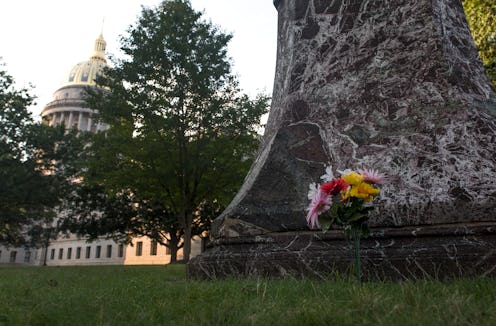News
Anti-Abortion Governor Makes Shocking Move
In West Virginia, the state legislature passed a bill to ban abortion after 20 weeks. On Friday, it landed on the desk of anti-abortion Governor Earl Ray Tomblin — and he vetoed it. Despite his own opposition to abortion rights, Tomblin concluded that the bill would both undermine the physician-client relationship and fail to pass constitutional muster.
In a statement, Tomblin affirmed that he believes “there is no greater gift of love than the gift of life.” However, he also said that he’s been advised “through my own legal team that this bill is unconstitutional,” and furthermore, that it would prevent patients from receiving “the best, most unfettered medical judgment and advice from their physicians regarding treatment options.”
This is obviously wonderful news for the women (and men) of West Virginia, but Tomblin’s veto holds important symbolic significance as well. For one, if he’d let the measure pass, West Virginia would have become the first Democratic-controlled state to pass a 20-week-abortion ban; as ThinkProgress points out, this would have allowed abortion opponents to present the 20-week-ban as a “moderate” position (“Even Democrats support it!”).
However, that’s not necessarily the end of the story, as it’s possible that the legislature will override his veto. The details of how this would work are a bit complicated, but in essence, it would require a special legislative session, like the one Rick Perry called in Texas to overcome Wendy Davis’s filibuster of a similar 20-week ban. Since Tomblin is unlikely to call such a session himself, the legislature would have to do so itself, which requires three-fifths majority. It would then have to gather a two-thirds majority to override the veto, and as of now, it’s unclear whether the votes are there.
Nevertheless, at least in the short term, this is great news for West Virginians.
Here’s Tomblin’s full statement on the veto.
I believe there is no greater gift of love than the gift of life. I have stated this time and again throughout my career and it is reflected in my legislative voting record.
However, I have vetoed HB 4588 because I am advised, by not only attorneys from the legislature, but through my own legal team that this bill is unconstitutional.
The bill is also problematic because it unduly restricts the physician-patient relationship. All patients, particularly expectant mothers, require the best, most unfettered medical judgment and advice from their physicians regarding treatment options.
The medical community has made it clear to me that the criminal penalties this bill imposes will impede that advice, and those options, to the detriment of the health and safety of expectant mothers.
